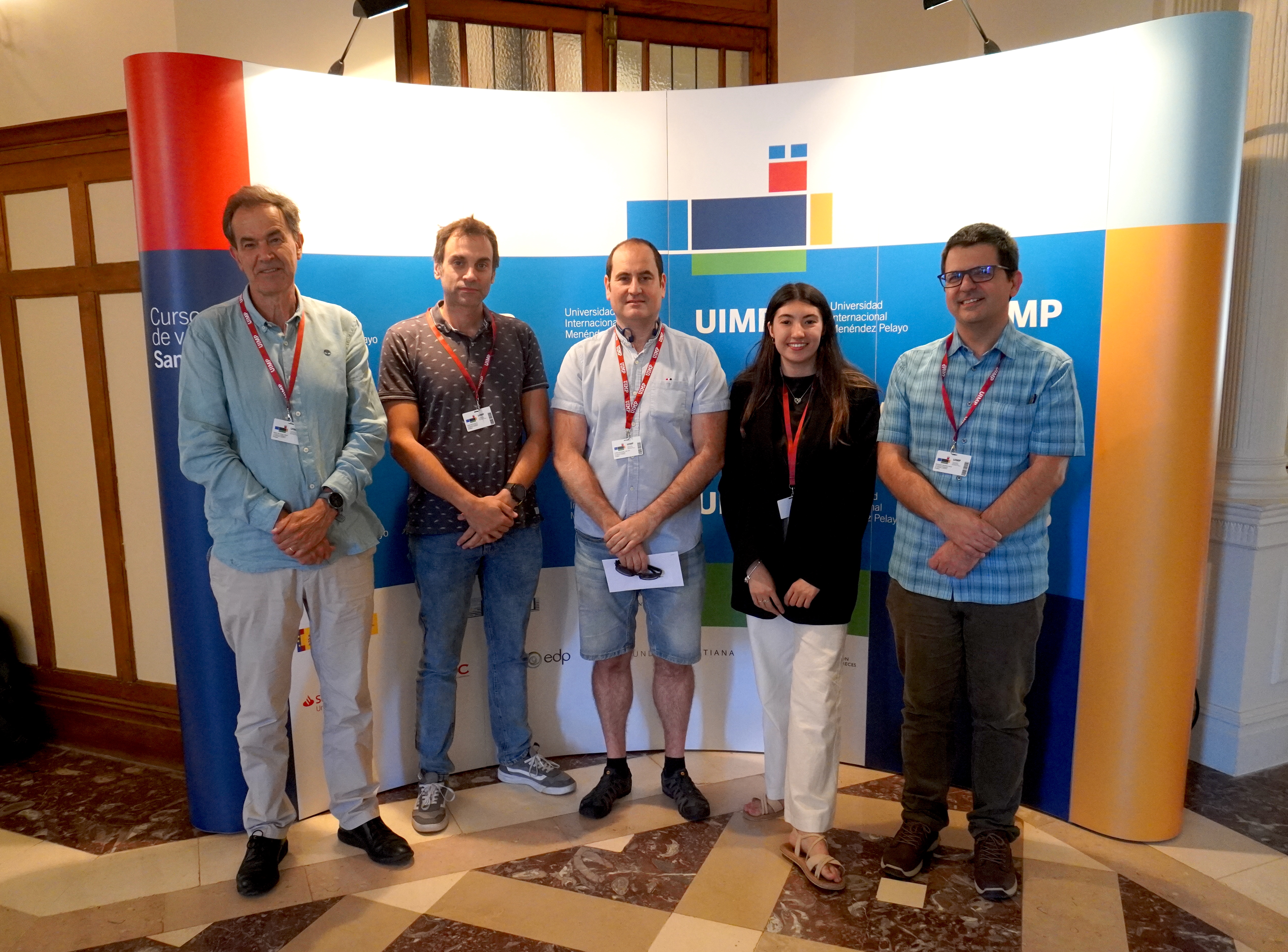
From left to right: Jesús Marco, Álvaro López, Ibán Cabrillo, Judith Sáinz-Pardo and David Rodríguez.
Staff of the IFCA Computing Group participates in the UIMP course ‘Data in research: challenges and opportunities’, at the Palacio de la Magdalena
In Santander, 29th August 2024
From 26 to 28 August, the Palacio de la Magdalena in Santander hosted the course ‘Data in research: challenges and opportunities’, organised by the Menéndez Pelayo International University (UIMP) and the Interdisciplinary Thematic Platform (PTI) ‘Science and Digital Innovation of the CSIC, with the participation of researchers and technical staff from the Advanced Computing and e-Science Group of the Institute of Physics of Cantabria (IFCA, CSIC-UC).
The main driving force of the course was data science, a discipline that has been booming in recent years, which deals with extracting knowledge from large amounts of data, and which has become an essential tool for various areas of research, from science to humanities, including computer science itself.
The course director, David Rodríguez González, PhD in Science and researcher in the Advanced Computing and e-Science Group at IFCA, explains that "in recent years, data science has experienced tremendous growth, mainly due to the increased availability of data and the development of new techniques and algorithms to process them".
The specific objective of the training, which was attended by more than 20 participants, was to address the challenges of data science in research from a multidisciplinary and very practical perspective, as well as to explore the needs that exist in this area, the points in common and the synergies and advances that can be made in the different research disciplines.
Throughout the three days of the conference, the problems of data science have been raised, issues related to the treatment of large amounts of scientific data, its storage, processing and analysis, the application of AI to multidisciplinary science, the multiple uses of distributed learning (a type of predictive artificial intelligence), or issues related to security, privacy, or secure data environments have been addressed.
David Rodríguez González (IFCA), the director of the training, in one of his seminars.
Roundtables
Among the current challenges in data science, one of the round tables addressed ethical considerations, for example, the biases of artificial intelligence and its analysis, i.e. the way in which data reflects the biases of the people who collect or analyse it, which can lead to erroneous or harmful conclusions.
Another of the current topics in the field of data was addressed by IFCA researcher Jesús Marco de Lucas: the influence of Chat GPT on research, establishing a parallel with a student and his teacher, where the teacher would be the artificial intelligence and the student, the researcher himself. "In this way, this interaction serves as a test of scientific understanding with the machine", explains Marco de Lucas, “if the student is able to extract knowledge, capacities or skills from the AI, it means that the AI is a good teacher”.
Judith Sáinz-Pardo, researcher at IFCA's Advanced Computing and e-Science Group, addressed the advantages and dangers of distributed learning, Álvaro López presented the Cloud infrastructure for open data science (the European Open Science Cloud, EOSC); Ibán Cabrillo addressed security policies such as ISO 27001 or the National Security Scheme, and David Rodríguez discussed the importance of data privacy and presented de-identification techniques and secure data environments.
Other presentations were given by the research team of the CSIC's Science and Digital Innovation ITP and organisations such as the CSIC's Data Protection Department, the Centre for Molecular Biology (CBM - CSIC) and the Institute of Microelectronics of Seville (IMSE-CNM-CSIC).
Rebeca García / IFCA Communication
